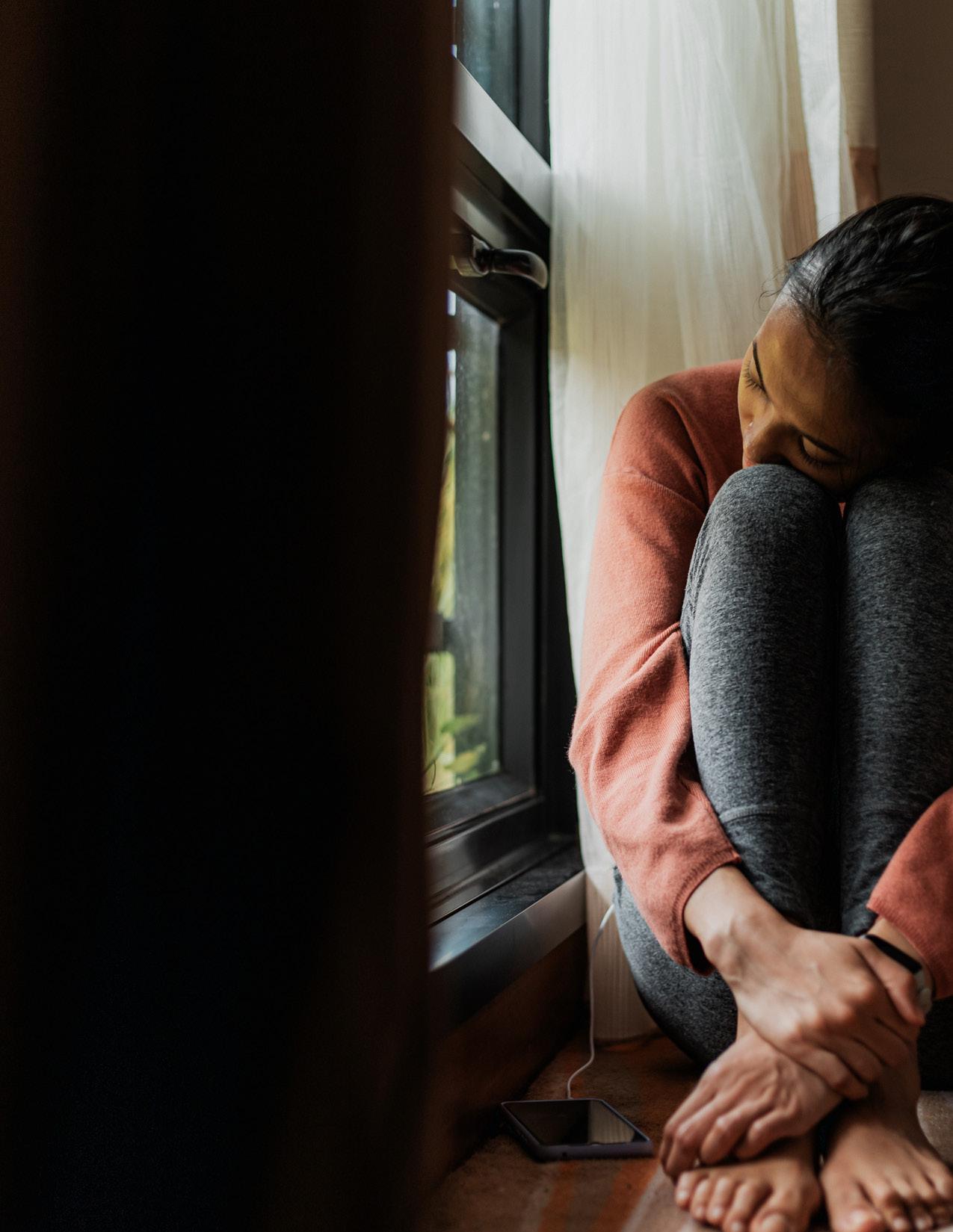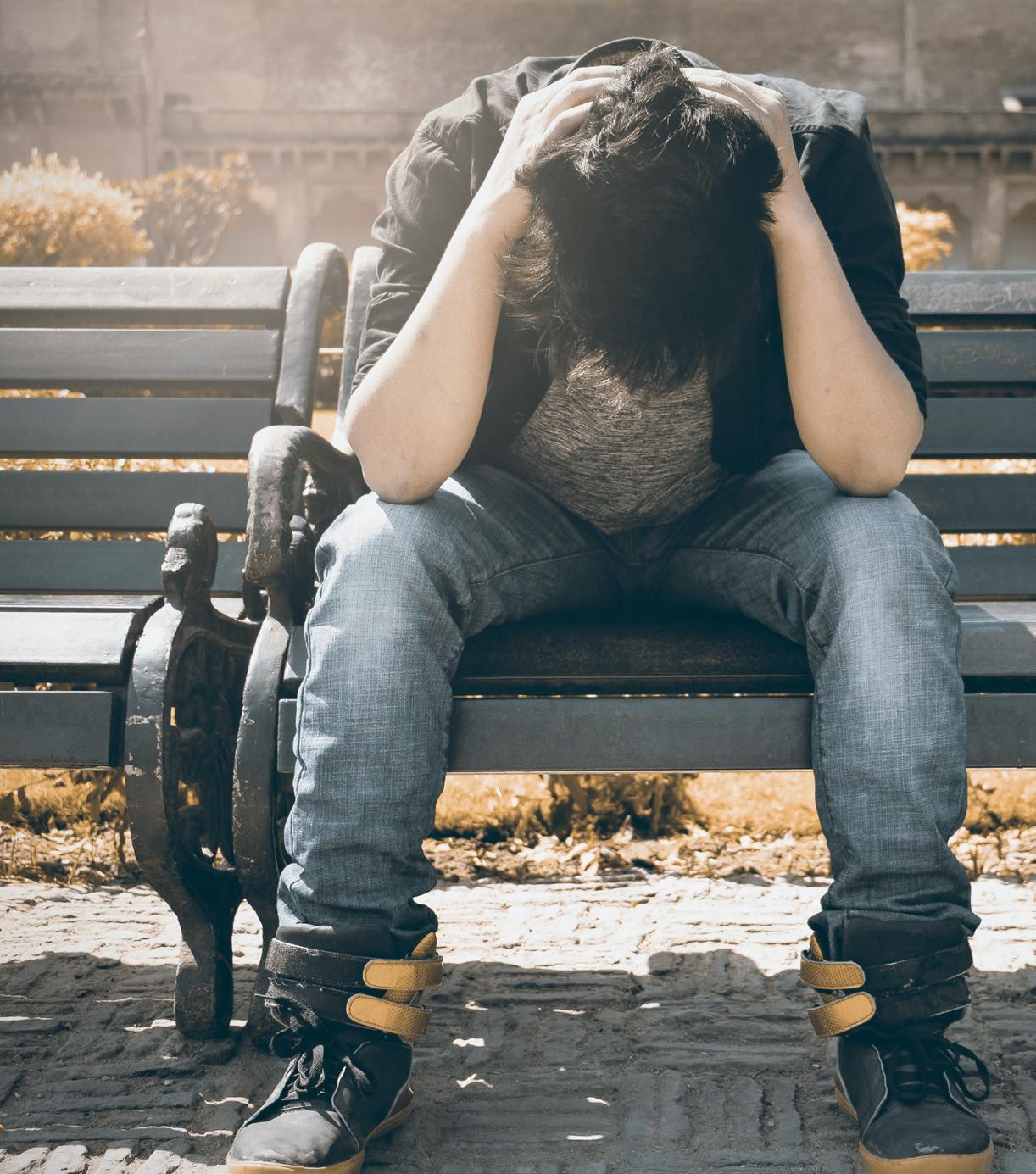
6 minute read
Coping With Cabin Fever
Bowater talks about the effects of isolation and how to combat the extreme symptoms of “cabin fever.”
By Bethany Bowater
Advertisement
Whether you find yourself hunkering down during inclement weather in an actual cabin, stranded on a life raft in the open ocean or, even worse, forced to quarantine with your spouse and two toddlers during a pandemic, you have likely experienced the symptoms of stress, anxiety and negative emotions that accompany cabin fever. The term cabin fever is not a medically defined condition, but a ‘folk syndrome’ defined as “extreme irritability and restlessness from living in isolation or a confined indoor area for a prolonged time.” During a recent interview I was asked what the most difficult part of survival was for me, the answer came easily: boredom and isolation. The interviewer seemed disappointed with my answer and moved on quickly as if surely, the disgusting things I had eaten must top the charts instead. I guess my answer seemed well… boring. How much thought or curiosity have you put into exploring what boredom means to you, what loneliness is like for you and how you respond? My guess is that your response is automatic or perhaps boredom seems trivial and insignificant because there is always such an easy fix available. When experiencing negative emotions, we tend to quickly do whatever it takes to minimize or eliminate the felt experience. At the risk of sounding like your typical therapist, I encourage you to slow down and notice. Notice your emotions and notice how you respond to the world around you. Boredom, loneliness and all emotions should be approached with curiosity not judgment, denial or dismissal. They are important signals that often indicate a need for appropriate action that supports overall wellbeing or, in some cases, survival.
Boredom seems to have always been part of the human experience. The book Out of my Skull: The Psychology of Boredom by James Danckert and John Eastwood discusses the earliest accounts of boredom and the research and theories that have come to be. One of the earliest written accounts of boredom was from the narrator of Ecclesiastes who wrote of the continuous daily labors that all felt meaningless. There are also writings by Seneca, a Roman philosopher, who described the monotony of daily life as one that made him nauseous and left him feeling dreadfully empty. Over the past few decades there has been an increased interest in the study of boredom; why we experience it and what it means.
The answer is that there are many different theories. According to Danckert and Eastwood, it could be due to a lack of meaning and purpose, a push to engage, an attention deficiency or a neurological state that is rooted in our physiology. Like all emotions, boredom is not a bad thing, it is how we respond to it that is innately bad. The Covid-19 pandemic and the quarantines enacted to slow the spread of the virus shed new light on the experience of ‘cabin fever’ and the mental health effects of isolation.
Prolonged lockdowns due to the coronavirus magnified the impact isolation can have on mental health and how difficult it might be to learn to cope given the current state of societal norms. If you think about how easily accessible and how continuous our minds are stimulated today compared to more simple times, it can be enlightening. With the constant flow of entertainment, social media, TV shows, gaming devices, shopping, etc. at our fingertips, it is not surprising that when faced with less stimulating environments we are seeing more emotional and psychological dysregulation at a greater rate and speed than we have ever seen before. This is especially true in our youths, who have never known anything different. In my private practice so many of my clients express extreme distress in their lack of ability to be still or feel content moving at a speed less than a million miles per hour and constantly engaged and stimulated. This type of programmed behavior can only exacerbate the symptoms associated with cabin fever and the ability to cope.
What can isolation do to our mental health? Depending on duration and circumstances, the effects of isolation can truly be devastating to a person’s psyche. In her book, Solitary Confinement: Social Death and its Afterlives, Lisa Guenther outlines the harmful effects of social confinement within the U.S. penal system. She writes, “Deprived of meaningful human interaction, otherwise healthy prisoners become unhinged. They see things that do not exist, and they fail to see things that do.” Social isolation and loneliness are strongly correlated to anxiety, depression, self-harm and suicide attempts. The symptoms of cabin fever may include lassitude, irritability, moodiness, boredom and feelings of dissatisfaction in response to confinement, bad weather, routine, isolation, or lack of stimulation. Sleeplessness (insomnia), excessive sleep (hypersomnia) and hallucinations have also been reported. Paranoia and difficulty in rational decisionmaking can lead people to do unthinkable things. Some may feel compelled to escape their confined space or limited routines, regardless of external conditions or the cost to themselves or others, according to Paul Crawford in his piece for The Association for Child and Adolescent Mental Health, Editorial Perspective: Cabin fever - the impact of lockdown on children and young people. Having an awareness of your thoughts, feelings and bodily reactions is crucial as they are all important signals trying to cue an appropriate response.

Actions to combat cabin fever will likely vary on the individual, the circumstances and their responses to stressors. It is important to do everything possible to maintain a positive mental attitude and the will to survive. Never lose hope, practice acceptance of the things you cannot control and focus on the things you can. Below is a list of things you may be able to control that will help you overcome or lessen the negative effects of cabin fever:
Create a routine- Try to create a routine that incorporates and prioritizes basic health needs.
Set goals- Focus on setting small and obtainable goals. Setting goals can help provide a sense of purpose and achievement. Track your progress and create a reward system when you reach a goal.
Maintain proper sleep hygiene- It is important to try to maintain proper sleep hygiene and sleep routines. Too much sleep, too little sleep, difficulty falling asleep or maintaining sleep could be signs of anxiety and depression. Sleep hygiene plays an enormous role in overall health.
Maintain healthy/ normal eating habits- Try to maintain a balanced diet. Staying more sedentary can cause people to snack or eat more due to boredom. Less activity could also cause a lack of appetite. Maintaining a balanced and regular diet will improve energy and mood.
Exercise- Continue to move. Activities that increase heart rate and blood flow will improve physical and mental health. Exercise is an excellent way to expel excess or pent-up energy. This will improve symptoms of anxiety and increase energy and mood.

Go outside- Spend time outside or in sunlight, if possible, for its countless benefits include maintaining sleep cycles, changing the scenery, feeling less couped up, Vitamin D exposure which can help regulate mood, fresh air and more.
Social engagement- Humans are social creatures. Whether you consider yourself an introvert or not, human connection is paramount for emotional regulation. In-person or virtual communication can alleviate loneliness, boredom, restlessness, irritability, etc.
Keep your mind active- Play games, do puzzles, read, imagine, daydream or get creative with artwork. Do what you can to engage your senses and activate your brain. These things will make the time seem to go faster and help alleviate boredom and the sense of helplessness.
Practice mindful meditation- The ability to be still, quiet, calm and attuned to one’s body, thoughts and feelings will help regulate the nervous system. This is a proven method to combat symptoms of anxiety and depression. It can help the mind recalibrate, improving focus, logic, mood and more.


The human capacity to adapt and overcome extreme circumstances is profound. There are many stories of survival where people have endured extensive periods of extreme isolation. Elisabeth Fritzl was held captive by her father in a basement for 24 years. Hiroo Onoda was a Japanese soldier who spent 29 years in the Philippines, cut off from civilization after WWII. Louis Zamperini survived 47 days at sea in a life raft and then 2 years in captivity. All the survivors of these true accounts describe utilizing most of the coping mechanisms listed above. Cabin fever is most often viewed as a temporary annoyance. However, as discussed in this article, extreme cases can have a devastating impact on mental health and overall wellbeing. I encourage you to always listen to your body and pay attention to the symptoms as they are important signals calling for action. In most cases of cabin fever, where symptoms are mild, taking the steps listed above will help you feel better. If symptoms of cabin fever persist or you feel you are being impacted more significantly, reach out to a doctor or mental health provider.









